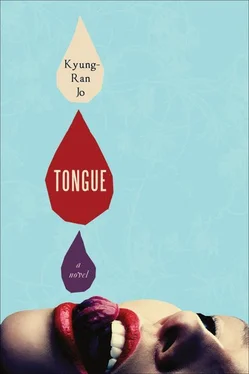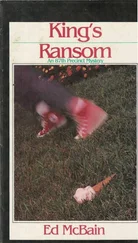IN APRIL SINGAPORE, also known as “The Earth’s Kitchen” or “The World Capital of Food,” hosts the World Gourmet Summit. This year seventy events will be held for three weeks at fourteen restaurants and seven first-class hotels downtown, including the Conrad Hotel near City Hall. The summit is famous for its renowned chefs, who come from all over the world to cook and satisfy appetites and teach master classes. You can taste the works of Michelin-starred chefs and converse with them without flying all the way to Europe. Anyone who works at Nove for at least six months can attend for educational purposes.
This year Chef is leaving Manager Park in charge of the restaurant and going to the summit with the most junior cooks, Choi and Kim. It’s rare for Chef to accompany them, and it’s even more surprising that he suggests that I attend a wine workshop. There is always more to learn, Chef says. I know this, but hearing it pains my heart. His voice reveals that he knows I’m wavering in the kitchen between chicken and duck, eggplant and onion. Or you can just take some time to rest, Chef says. I don’t recognize this version of Chef—I’m looking at someone who’s usually curt but who has suddenly turned very sweet. A man who is stern and standoffish should continue to be like that until the day he dies. It wouldn’t be as sad. I’m not saying you should go to the summit and just rest. You have to eat something different for every meal . I nod. Chef might be more worried about my eroding sense of taste than about my well-being. When a cook starts to lose his sense of taste, the best way to cure it is to leave the kitchen and eat food prepared by other cooks. Just as the best way to treat someone with an eating disorder is to bring him into the kitchen and have him make something. Three days. It’s also a chance to test myself, to see if I can go without thinking about Seok-ju. As we board the plane I mumble, At least it’s not an entire week.
We’re staying at the Metropol, which is a seven-minute walk across the bridge from City Hall, where the five-star hotels are clustered and where most of the events will be taking place. Chef and Kim are sharing one room and Choi and I will share the other. As soon as we get to the hotel we disperse according to each person’s schedule of events. Singapore in April is busy and humid and congested. I change into a cotton skirt, a white T-shirt with sleeves I can roll up, and light sneakers. If Seok-ju were here he would tease, All white again? Even when I wear sky blue it has white polka dots on it; if I wear a striped T-shirt, the stripes are white. You always have to wear white, like a birthmark! he’d say, smiling as if he’d discovered something amazing. I wear white in the kitchen, to feel at home. I smooth the front of my clothes and decide to go eat laksa.
Singapore bursts at the seams with gourmets from all around the world. To determine who is a gourmet and who is not is as uncertain a dilemma as figuring out where a duck’s head starts and its body ends. It’s not important whether someone is a gourmet. Everyone wants to eat and knows that food is crucial to live. But everyone has his own special reaction toward food. One person can become so excited about a certain dish that his eyes sparkle and his muscles harden, while someone else shovels in the same dish without paying any thought to what he’s eating. A gourmet appreciates beauty. Gourmets eat slowly and thoughtfully experience taste—they don’t rush through a meal and leave the table as soon as they’re done. People who are not gourmets don’t see cooking as art. Gourmandism is an interest in everything that can be eaten, and this deep affection for food birthed the art of cooking. Other animals have limited tastes, some eating only plants and others subsisting solely on meat, but humans are omnivores. They can eat everything. Love for delicious food is the first emotion gourmets feel. Sometimes that love can’t be thwarted, not by anything.
Foie gras is the most popular gourmet food, but it isn’t always easy to come by. In the 1970s, America banned the import of foie gras because of certain illness-causing bacteria. But even this international barrier couldn’t stop Jean-Louis Paladin, the world-class chef who was at the helm of the famed Napa restaurant in Las Vegas. He flew to France and shoved a goose liver into the gullet of an enormous angler fish and brought it back. He knew that customs agents would never want to feel around in the gullet of a fish. With his precious foie gras he made a dish that wasn’t on the menu, and food lovers swarmed the restaurant and greedily ate slightly seared foie gras in a wine reduction.
The love for delicious food. This love is analogous to that between men and women. Cooks and gourmets make ideal partners. The cook’s purpose in life is to use food to make people happy, and the gourmet never stops thinking about good food. After I peeked through the crack in the pocket door last fall and saw Seok-ju and Se-yeon together, I started to think that people immersed in sex must be gourmets, too.
I sit at an old outdoor table at Marine Parade Laksa in the streets of Katong and focus on eating. The laksa, made with coconut milk and rice noodles and a handful of herbs, is rich and hot enough to burn the roof of my mouth. In this food paradise, the first thing I eat is the all-too-common two-dollar laksa. I think I might laugh. I wrap the noodles around my chopsticks and put them in my mouth. The thick rice noodles have a nice texture to them. I like rich, murky soup like this. This coconut smell. The scent of spices, the aroma of herbs. It’s the smell of Singapore, where I first came with him, the old street we searched for, famished after walking in the East Coast Park near our hotel, the pastel houses and flowery tiles in Katong. If I turn the corner at that 7-Eleven I will see him standing awkwardly, tall and bent forward, like back then. If I walk three blocks I’ll be at Katong Antique House—we will be preserved there like wax figures, him choosing a blouse for me, and me looking at china. First I’ll finish this bowl. Then I’ll go there, one more time. I slurp the soup.
The thousands of taste buds on my tongue wake up one after the other. Taste is the most pleasurable of all human senses. The happiness you get from eating can fill the absence of other pleasures. There’s a time when all you can do is eat. When eating is the only way you can prove that you’re still alive. Large raindrops splatter onto the table, signaling the imminent arrival of a squall.
To eat or not to eat. To love or not to love. That is the question for the five senses.
MEMORIES ARE LIKE A WINDMILL with sharp points, spinning in your heart, stabbing it. The more you dwell on them the more they spin, quicker and quicker. Will the edges eventually dull? Will such a day come? Am I actually longing for that day to come, or are the sharp points keeping me alive? My past stays with me no matter how much time flows by. It’ll be good not to think about it, if only for three days. I bite my lip. Is there something I wouldn’t be able to do unless I did it right now? I feel that something will change for me when I go home. I feel more trepidation than excitement. Here, all I do is eat at three different restaurants a day. My nervousness might be a sign that my subconscious is vibrantly alive. With that faint hope, I eat breakfast at Killiney Kopitiam near the Somerset MRT station—French toast with jam of kaya, made of coconut milk, eggs, and sugar. I sense saltiness before sweetness.
In the afternoon I’m supposed to attend the wine workshop at the Conrad. I buy two jars of homemade kaya jam and hop into a cab to Chinatown. It’s hot and humid and it might rain again. From a fruit stand I buy a green-tinged mango and a bright yellow Hawaiian papaya. I bypass exotic fruit like mangosteen, juicy and tart enough to be called the queen of fruit, little orange-colored bananas, and champedak, which is too smelly to bring into the hotel. I can make a sweet and light dessert by slicing the orange mango into thin slivers and shaving Gouda over it. Or these fruits would be perfect garnishes to honey-baked pumpkin. Mangosteen or champedak would be delicious with green-tea ice cream. Fruit is good on its own, but you can absorb more of its nutrients if you pair it with something else. Something is missing. I go into a Chinese bakery and buy a box of tarts. I don’t know if he still likes these cookielike pies, made with plenty of pineapple sauce thickened for a long time on the stove. We’ve seen each other a few times since he left but we haven’t eaten or drunk together. I don’t want to believe his tastes have changed. One’s sense of taste and smell do not change easily. I want to bake myself like a cake for him, or bake flour-salt dough into hard, salty, bracelet-shaped pretzels and cuff them to his wrists.
Читать дальше












